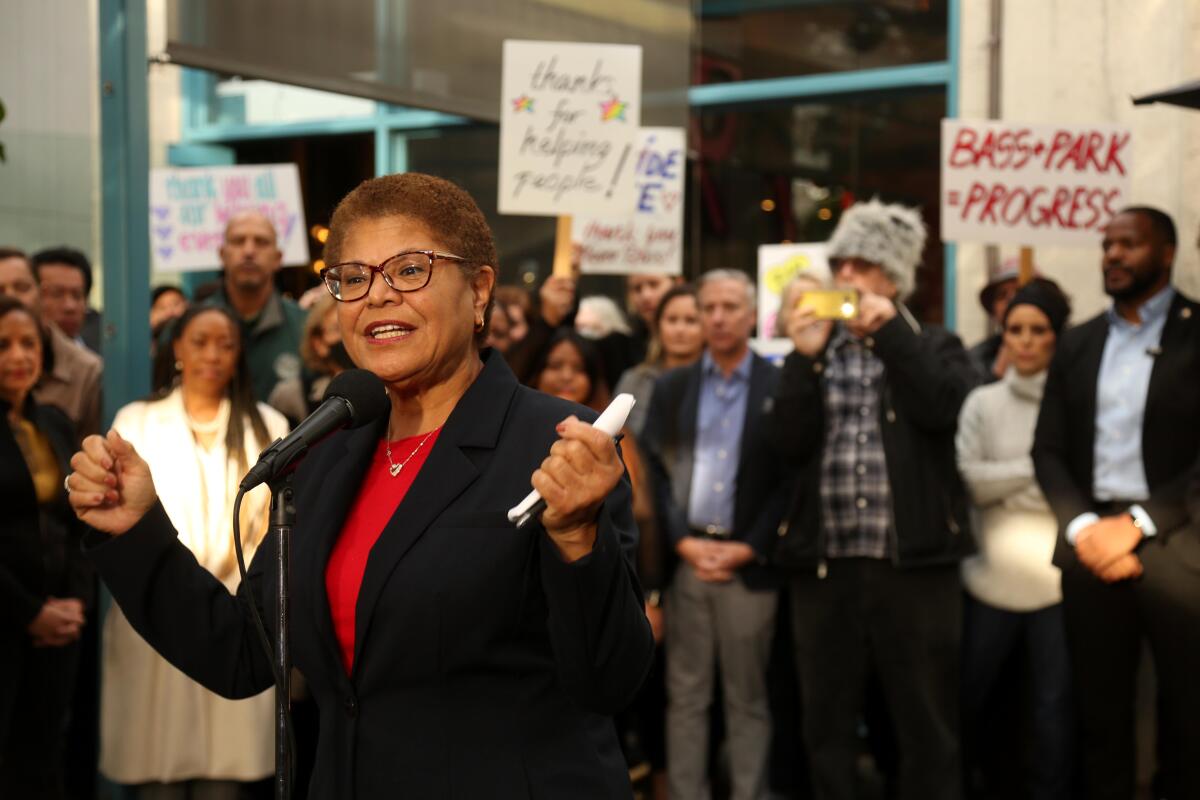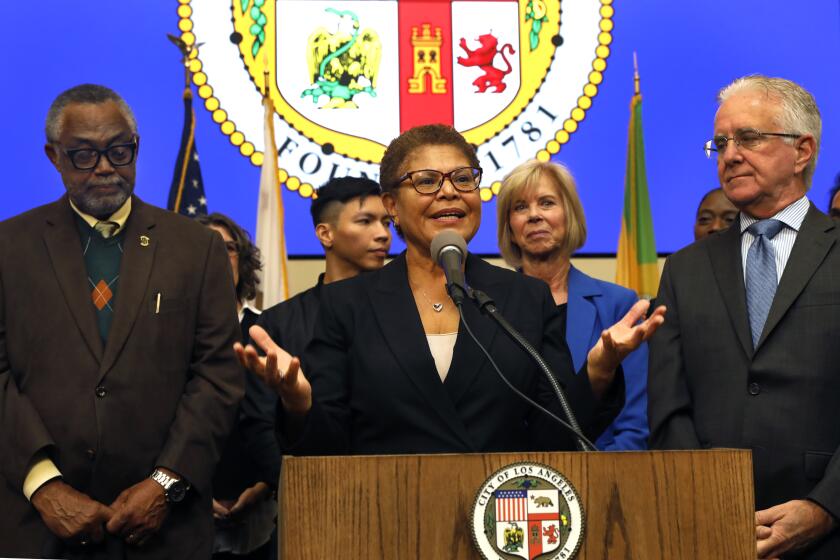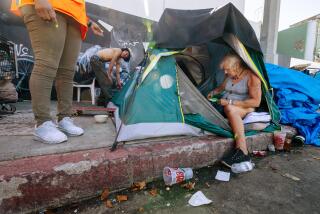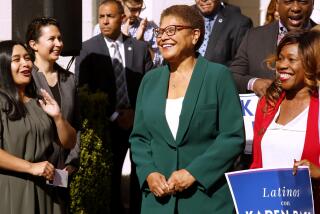Facing an unhappy judge, L.A. leaders vow to rework settlement on homeless services

- Share via
Los Angeles Mayor Karen Bass said Tuesday that city and county officials will spend the next three months reworking a legal settlement that spells out the types of services that must be on hand to combat the region’s homelessness crisis.
Bass appeared in federal court for the first time in the nearly 3-year-old case filed by the L.A. Alliance for Human Rights, which sued to force the city and county to build more shelter beds, expand mental health services for the city’s neediest, and ensure that streets and parks are safe for housed and unhoused residents.
The alliance negotiated legal settlements last year with the city and county that would require U.S. District Judge David O. Carter, who has been presiding over the case, to provide continued oversight. But on Tuesday, Carter told the politicians in the chamber that he would not sign off on such an arrangement for the county unless changes are made to its proposed settlement.
Weeks into her tenure as Los Angeles mayor, Karen Bass talks about her focus on homelessness and affordable housing.
Carter said the county’s settlement offered too few beds for people who are mentally ill or engaging in substance abuse, and not enough safeguards to hold the county accountable for meeting its obligations. The agreement, as currently written, would ultimately undercut Bass’ effort to bring 17,000 unhoused people indoors during her first year in office, he said.
Bass responded by asking Carter to let her and several others — including county Supervisor Janice Hahn and City Council President Paul Krekorian — discuss the settlement with him privately in his chamber.
After they returned, the mayor said publicly that she has been talking to officials in the Biden White House about securing new federal homelessness funding, which could pay for more mental health beds.
“The bottom line is, we feel that if we had 90 days, we could come back with a much better agreement,” Bass told the judge.
Bass declared a state of emergency on homelessness on her first day in office, and has said repeatedly since then that there is a new sense of urgency in tackling the crisis. The county declared its own emergency a few weeks later.
The proposed settlement between the alliance and the city calls for the creation of nearly 13,000 units of housing — shelter beds, subsidized apartments, tiny homes and other solutions — to serve unhoused residents by 2027.
The alliance’s settlement with the county calls for an increase in services to the unhoused, including an expansion in the number of teams helping Angelenos with severe mental illness and the creation of 300 new beds for those suffering from mental illness or substance use disorder.
Skip Miller, a lawyer representing the county, defended the agreement, saying it does in fact have a process to hold the county accountable. The agreement would bring the total number of beds for mental illness or substance use disorder to 8,900, he said.
The contentious federal suit has spanned the COVID-19 pandemic and taken on a political dimension.
Still, Hahn said after the hearing that the county could “do better.” She said she would work with Bass, the alliance and the other county supervisors on increasing the number of new mental health and substance abuse beds required of the county.
“I believe everyone believes that number should be higher,” she said.
Hahn also spoke in favor of new language to make the county more accountable for its obligations. And she argued that the city and county are “pressing the reset button” on addressing homelessness.
Elizabeth Mitchell, a lawyer for the alliance, said she was “thrilled” with the proceedings.
“This has been a very long process, and things that should have been done three years ago are just being done, to be quite honest,” she said. “But I believe there is a real sincere effort to turn things around.”
More to Read
Sign up for Essential California
The most important California stories and recommendations in your inbox every morning.
You may occasionally receive promotional content from the Los Angeles Times.













